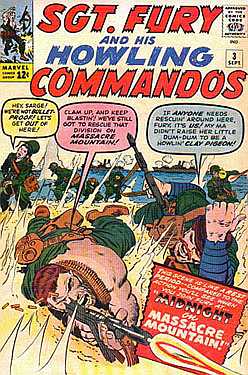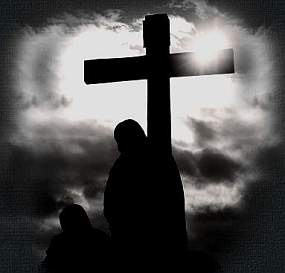Our church built a concrete parking area for the bikers.
On hot days, motorcycle kickstands sink into blacktop. Our parking lot is gravel, and when it rains that doesn’t work so well, either. So they chose concrete.
I imagine not too many churches construct a special place for bikers to park their Harleys. My church seems a tad more manly in that regard. Farmers, fishermen, truck drivers, mechanics—salt of the Earth kind of guys fill our pews. Lots of callouses. Talked this morning with a guy who crushed his hand in his tractor’s 3-point hitch.
I’ve got a tractor, too. A big, 35 h.p. Kubota. I pull an eight-foot Land Pride finish mower and a five- foot Bush Hog. Been able to run the service on those myself, so far. But I’m more a gentleman farmer (read: Eddie Albert in Green Acres). I talk about reading Dietrich Bonhoeffer or Stephen Hawking and other farmers’ eyes glaze over. I watch birds in my spare time, too.
See, I’m not very manly.
When I was born, the doctor said to my Mom, “You’ve got a linebacker.” Well, maybe for an NFL team in the 70s. At 6’4″, I’ve got the height, but 215 lbs. goes about 30 too light to play with the big boys nowadays. Half a life ago, I could bench press over 400 lbs and do 160 lb. one-armed bicep curls. Half a life ago.
I never played football in high school. I could’ve been a contender in basketball, but puberty left me with an inability to walk and dribble at the same time, so the NBA never called.
Though the men in my church have a fantasy league for nearly every sport imaginable, I can only name four players on the hometown Reds: Ken Griffey, Jr., Adam Dunn, Bronson Pinchot Arroyo, and the the Great White Hope, Homer Bailey. Standings? I have no idea. I can’t even keep up with sports team names and locations. Just the other day, I learned that the NBA Charlotte Hornets aren’t in Charlotte anymore—and I think that change came five years ago. I had no idea Charlotte had an NHL team, either. And though I enjoy watching hockey games (love the international rules Olympic hockey especially), I’m the oddball in the stands yelling, “Just play the darned game!” whenever a fight breaks out. And I do say darned and not something else.
Me, I was always a cyclist. But if I asked any of the guys at church about the Tour de France, I’d probably be stoned. “France? France??? Heck, the Ohio State football team could probably invade France and kill every last one of them Brie-eaters with their bare hands. Go Buckeyes! ”
Previously, as a member of a well-off Presbyterian Church, I’d hang with the men and they’d sit around talking investing. Or real estate. Or cars. Or electronics.  The latter I knew something about, but the rest flew over my head. And in those rare moments when the subject did stoop to sports, no one wanted to talk about Olympic volleyball, one of the precious few sports I’ll make time to watch.
The latter I knew something about, but the rest flew over my head. And in those rare moments when the subject did stoop to sports, no one wanted to talk about Olympic volleyball, one of the precious few sports I’ll make time to watch.
My Dad’s dad was the pinnacle of manhood—a Marine drill sergeant. But somehow, my Dad inherited little of that manliness. My Dad couldn’t rebuild a carburetor to save his life, relied on his sons to operate the stereo system, and usually injured himself on anything tool-related. He knew everything to know about the Civil War, but, sadly, that never clicked with his sons.
Dad had a job that he loved, though it took him away from home for weeks at a time. Eventually, he rose to the top of his company and was considered the savior of headquarter’s sales division, but a back injury forced him out of that job and into one he hated. I watched that office-bound job suck the life out of him, and when they forcibly retired him six months before he was due his full pension (receiving a third of what he would have received), I witnessed what happens to a man crushed in the cogs of big business. He walked away from the Church and died in 2000 at 66, a shattered man.
I wish my Dad had left me with more than he did. I’m making it up as I go along, so I’ll never be a pinnacle of what most people consider manhood.
After watching my own career go awry at the worst possible time, I decided I had to be my own boss rather than suffer the capricious whims of Jack Welch disciples whose go-to response to a bad quarter meant downsizing. So I started my own business. That meant my wife would have to be the primary breadwinner while I stayed home with our son, homeschooled (I have the education degree), managed the farm, and tried to get my business going. Most freelance writers like me take more than five years to see even the slightest bit of money, so I’ve done better than most. Still, my wife’s the one doing the heavy lifting for now.
Plenty of people don’t consider me very manly for being a stay-at-home dad who’s not the primary breadwinner. Church people like that not one iota. I know, I’ve been on the receiving end of the catcalls. A few holier-than-thous have questioned my worthiness as a husband, income—I guess—their sole characteristic of godliness. I’ve had well-meaning Christians ask me when I was going to get a real job, as if my writing business doesn’t count. When I ask them what writing projects they might refer my way so I can continue to build my business and return to being the primary breadwinner, they go scurrying. It’s easier for them to tell me that I’m not very manly than to actually help me be the man they think I should be.
You get left out of the rest of the world when you’re a stay-at-home dad. To the at-home moms, you run the risk of being considered the slob making your wife work OR some kind of sexual predator stalking the mom who’s a bit too lonely. Men don’t know what to think of you, either. You’re either the smartest guy in the world or the biggest loser.
Men don’t fall into the role of at-home dad very well. We took woodshop and not home ec. For this reason, our house is never as clean as it should be. I may do better than my wife in the culinary skills, but I’m not as naturally nurturing. Your best friend smacked you in the head with a golf ball? Well, son, that’s life. Shake it off. Meanwhile, I’m laughing because I can see the ball’s dimples in the rising bruise. Mom would slather him with attention and ice compresses.
Though I’m plenty creative, I confess I run out of ways to amuse our son. As a result, he spends more time on the computer than I would like. Friends of ours wondered how I could possibly tend our farm, start a writing business, homeschool, and handle what is traditionally the female role, while still doing all the manly things, too. The answer to that? Not as well as I would’ve hoped. So we’re making some changes. We’re putting our son in public school (in part) so I can get out and round up more clients. Of course, to some Christians, I might as well sacrifice my son on an altar to Molech as put him in public school. (I’ve heard that Lowe’s sells Molech Altar Kits for the do-it-yourselfer. Or was that Home Depot? Remember, I’m not very manly, so I get them mixed up.)
John Eldredge’s Wild at Heart took men in the American Church by storm. Today, finding one’s inner bowhunter or professional wrestler appears de rigeur. We’ve been told the Church is feminine, that men are bored with Church, and that singing how lovely Christ is comes off, uh…kind of gay. The antidote, the manliness pundits say, is to hunt bear with a pointy stick.
Manly? Somehow, I don’t think so.
The Dangerous Book for Boys occupies the top rung of nonfiction bestsellers, as sensitive ’80s guys attempt to raise their sons differently. In my neck of the woods, Boy Scouting fit that bill for decades, but the Boy Scouts aren’t trendy, they face countless frivolous ACLU lawsuits, and Dan Beard hasn’t had a bestseller in years. Being dead kind of throws a wrench into cruising the talk show circuit.
Jim Elliot died in an Ecuadoran jungle back in the 1950s. He’d gone to those jungles to reach the lost tribes who’d never encountered Jesus Christ. Elliot and the four other male missionaries that died beside him carried guns that could’ve easily dispatched their attackers, but they took the spears of their killers rather than send unsaved men to an eternal hell.
They deleted that scene in Braveheart…or so I’m told. I haven’t seen that movie, either.
True manliness isn’t found in beating a drum head (Hah! I actually do that one!) or bashing the heads of one’s enemies. God’s man isn’t the sports junkie who can recite all the stats of the greatest baseball team to ever grace a diamond, the ’76 Big Red Machine. He’s not the one who listens to Ted Nugent and hunts Kodiaks with a crossbow. He’s not even the soldier who gave his life in battle believing in a higher truth worth dying for.
No, the greatest mark of a Christian man is that other men desire to emulate him because they see Christ in all His glory living in him. The true manly man serves as a hallmark, a lighthouse, and road sign on the path to heaven. He’s not afraid to cook a meal for the poor. He visits the sick. He looks out for lost little children. A bent reed he does not break. A smoldering wick he does not quench.
Chances are he won’t know who’s on top in the AFC North, can’t regale you with the specs of the hottest electronic gadget, and won’t be out training for a triathlon. God’s man kneels in his prayer closet, where no one sees, and tears down strongholds that would make William Wallace wet himself. That kind of man makes tough choices that take him in a direction the rest of the world can’t understand, even the rest of modern Christian men. He may not be considered the prime example of manhood in his day, but he’ll leave a legacy that shines like a beacon for generations to come.
I’m writing this on Father’s Day. Yesterday, my son and I built a hand drum. We had a good time. A friend gave me The Dangerous Book for Boys (thanks, Eric!) this past Friday, and my son and I will probably do a lot of good projects out of that book this summer. But none of that makes me an acceptable dad. The only thing that makes a man a man is to model Christ for his generation and the next, even if that model doesn’t look anything like the models we typically hold out for manliness. It may mean we holster our gun and take the spear. We may have to forgo the bear-hunting trip to run errands for the elderly lady next door. That won’t make us popular, or even understood.
But it does make us men.
 He won the prize after losing his head.
He won the prize after losing his head.
 The latter I knew something about, but the rest flew over my head. And in those rare moments when the subject did stoop to sports, no one wanted to talk about Olympic volleyball, one of the precious few sports I’ll make time to watch.
The latter I knew something about, but the rest flew over my head. And in those rare moments when the subject did stoop to sports, no one wanted to talk about Olympic volleyball, one of the precious few sports I’ll make time to watch. Our lack of commitment may be the sole reason for our ineffectiveness in light of the world’s onslaught.
Our lack of commitment may be the sole reason for our ineffectiveness in light of the world’s onslaught.